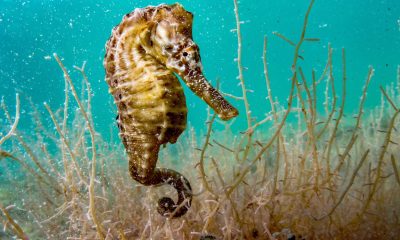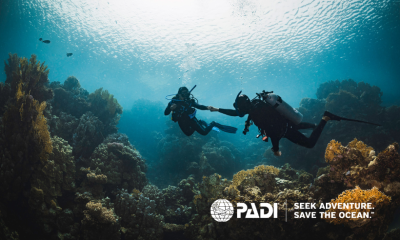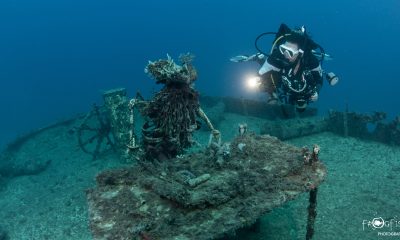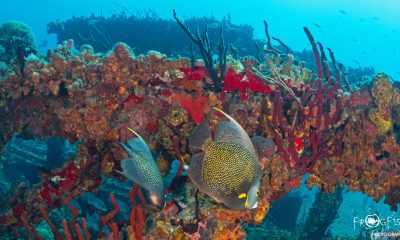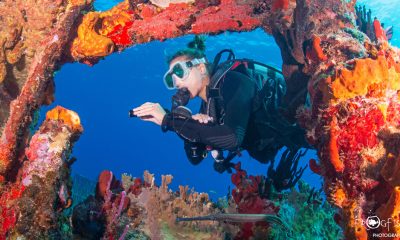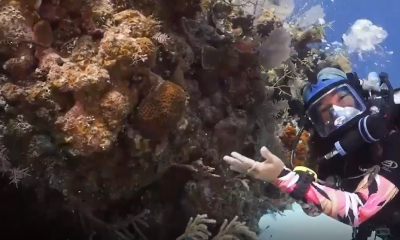News
Sharks move to deeper water as they mature
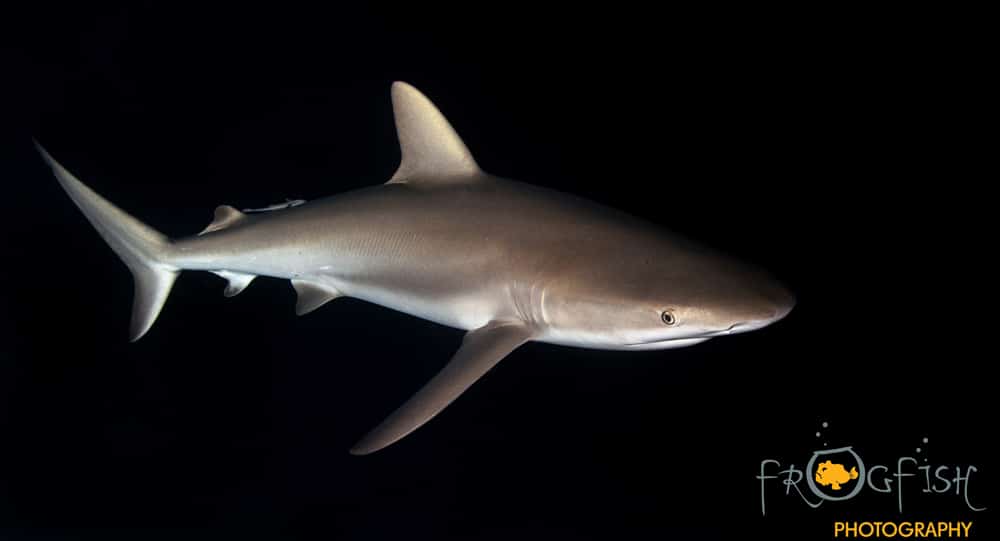
A new study from Wageningen University & Research (WUR) showed that reef sharks utilize different areas of the reef throughout their lifetime. Using baited video cameras, six different species of reef sharks were recorded around the northern Dutch Caribbean islands. These results will impact the design and implementation of shark conservation strategies for years to come.
Reef Sharks
Reef sharks play a critical role within the ocean. As a top predator, reef sharks help maintain the delicate balance within (coral) reef environments. In fact, research has found that reefs with healthy shark populations are more resilient and capable of withstanding the pressures of climate change, pollution, overfishing and diseases.
Juvenile Sharks
Understanding the dynamics of habitat use of local shark populations is critical when designing effective marine conservation strategies. This is exactly what the latest reef shark study from WUR hoped to achieve. Using baited remote underwater video cameras at 376 locations around the reefs of Saba, Saba Bank and St. Eustatius, fish ecologist Twan Stoffers and his colleagues recorded 126 different shark sightings.
Of the six different species recorded in this study, juvenile Caribbean reef sharks (Carcharhinus perezi) and nurse sharks (Ginglymostoma cirratum) were most commonly recorded. Overall, they observed young sharks in shallow, more complex areas of the reef, whereas the larger, more mature, sharks were observed further away from the reef in deeper habitats up to 65 meter depth. Larger nurse sharks were frequently recorded in seagrass beds. The researchers were surprised that hardly any adults were observed over the course of the entire study.
Implications
This knowledge could have an important impact on conservation strategies for reef sharks and other endangered shark species. Since reef sharks use a variety of different habitats (both shallow and deeper water areas), creating an interconnected conservation network is vital for ensuring full protection throughout their life cycle. Sanctuaries such as the Yarari Sanctuary (which includes the marine area around the Caribbean Netherlands) are an important step in creating a network of protected areas. In addition, efforts such as the Caribbean Shark Coalition are important as well, because they work to build capacity for shark and ray research, policy and conservation within the Wider Caribbean Region.
Report your sightings
You can help contribute to the overall understanding of sharks and other species by reporting your nature sightings on sightings and photos on DutchCaribbean.Observation.org or download the free apps (iPhone (iObs) & Android (ObsMapp)).
Species reports by local communities and tourists are invaluable for nature conservation efforts to help increase public awareness and overall species protection.
DCNA, Observation International and Naturalis Biodiversity Center are working together to develop on automated species identification app for your phone for all species on land and in sea. Your uploaded photos are of great value to make this possible. For questions, please contact research@DCNAnature.org
News
Seahorse National Park announced on Eleuthera in The Bahamas
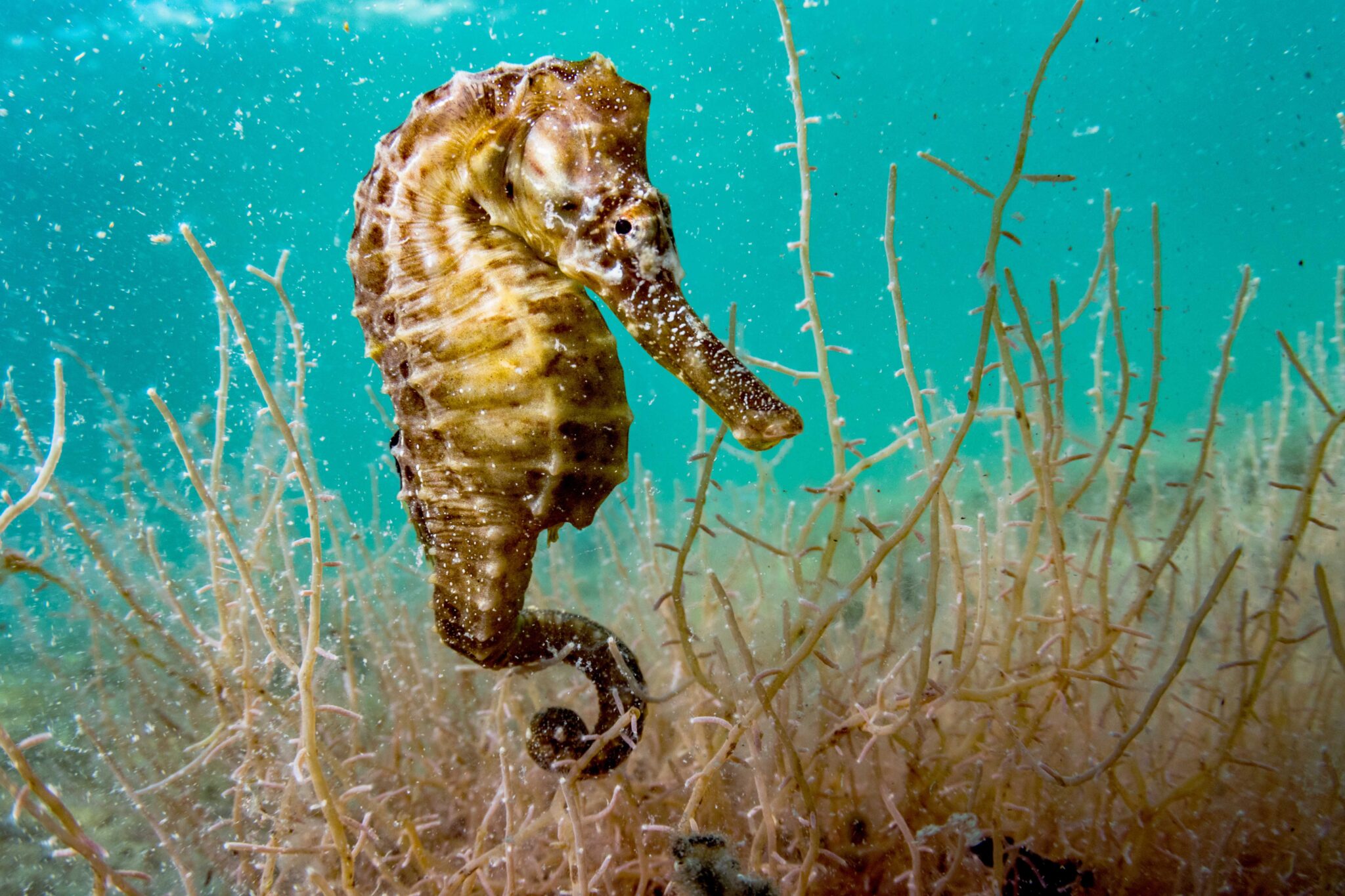
This week has seen the announcement of the designation of Seahorse National Park at Hatchet Bay Cave and Sweetings Pond on Eleuthera. This monumental announcement comes after years of efforts from the BNT and its partners in advocating for the protection of Sweetings Pond and its surrounding areas as an official national park under the BNT’s management.
Sweetings Pond is a large, land-locked saltwater pond in Hatchet Bay, Eleuthera. It has many unique natural features, but the most notable of them all is its incredible seahorse population, which is believed to be the densest population of seahorses in the world. The new 548-acre national park protects the entire one-mile-long pond and the surrounding terrestrial area. The land surrounding Sweetings Pond is a blend of intact coppice, mangroves, and farmlands. In addition, the new national park includes the extensive Hatchet Bay Caves system. This historic cave system is a popular attraction and contains a number of impressive geological features. It is one of the longest dry cave systems in The Bahamas.
Since 2014, the BNT has been leading efforts to have the area declared as a national park. This included years of public outreach and stakeholder consultations in communities across Eleuthera; education presentations in local schools; science and research efforts; and engaging consecutive government administrations. In 2018, the BNT submitted the “20 by 20 Marine Protection Plan” to the government, which included the recommendation to declare Sweetings Pond and other areas in The Bahamas as protected areas.
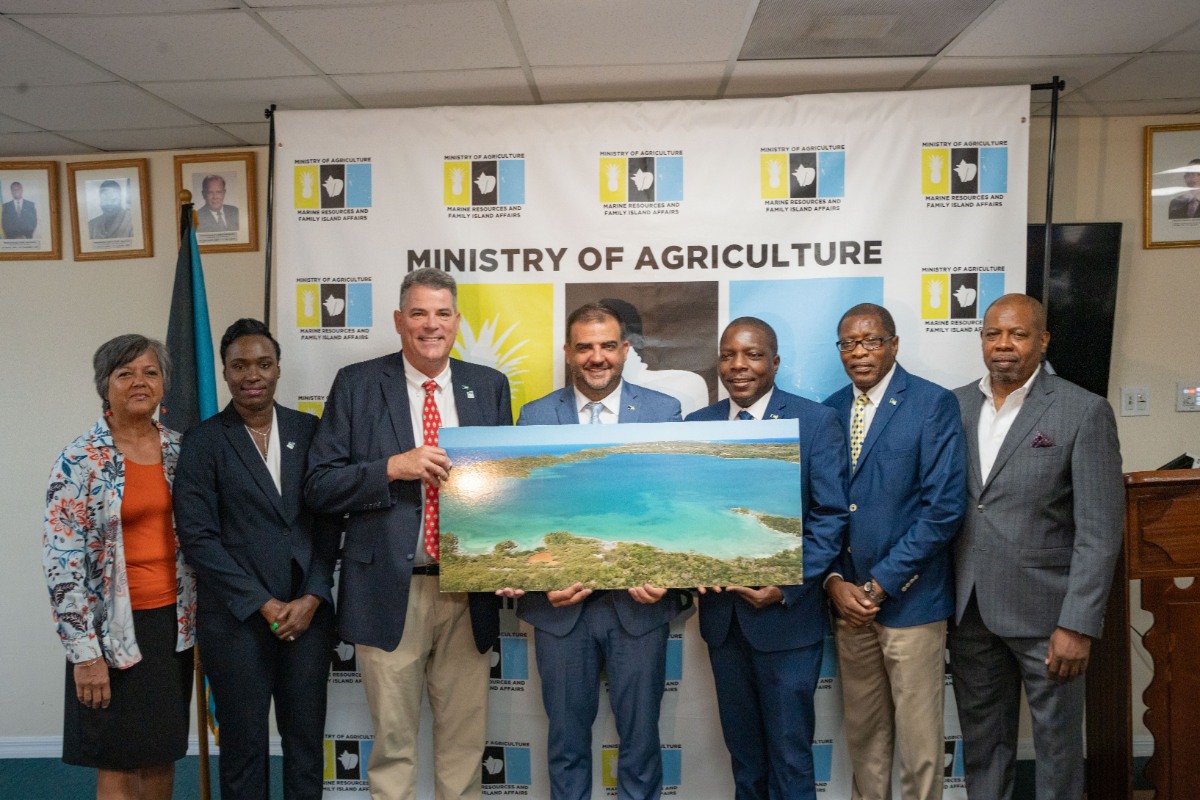
During the lease signing ceremony for Seahorse National Park, Minister Clay Sweeting, said, “This lease agreement for Sweetings Pond has been a long time coming. It represents a milestone in our journey towards sustainable development. It symbolises our collective responsibility to safeguard our natural heritage and create a harmonious relationship between economic progress and environmental preservation.
“I would like to express my gratitude to all stakeholders in this process of drafting and finalising this lease agreement. Their dedication, expertise, and commitment has been crucial in ensuring that this agreement falls in line with our vision of creating a thriving ecosystem while promoting responsible usage. Let us continue to preserve the jewel that is Sweetings Pond for many generations to come.”
The BNT invites the public to stay tuned for more news about its plan for the country’s newest national park: Seahorse National Park at Hatchet Bay Cave and Sweetings Pond!
To learn more about the role the BNT plays in managing terrestrial and marine national parks, conserving wildlife, and informing environmental policy, please visit its website: www.bnt.bs
Follow/subscribe to its various social media channels: Facebook, Instagram, Twitter, and YouTube.
Banner Image: A lined seahorse (Hippocampus erectus), female, clining to algae in an alkaline pond in The Bahamas by Shane Gross
News
PADI Club invites Ocean Lovers on exclusive dive trip to Bonaire this September
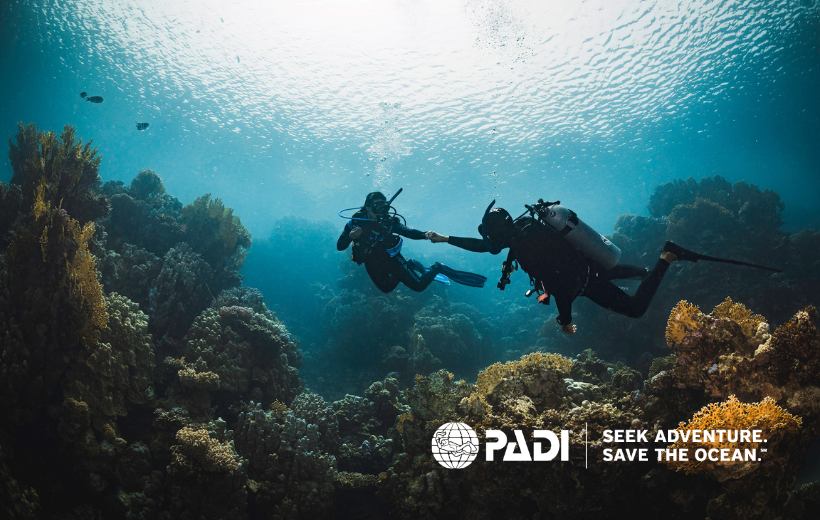
Following the popularity of the PADI Club trip to Belize at the end of July, a second “dive trip of a lifetime” has just been announced by PADI Club to Bonaire this September 23-30, 2023.
Offered exclusively for PADI Club members as part of their yearly benefits, attendees will get to seek adventure while staying at the all-inclusive Buddy Dive Resort, one of PADI’s premier members on the island. Other PADI Members in Bonaire – including Toucan Divers, Divi Flamingo, Wanna Dive, Dive Friends and Scuba Do – will also be hosting various dive experiences throughout the week.
“Bonaire is a unique and beautiful gem in the Dutch Caribbean and we want to show our Club Members this little island looms large as a dive destination,” says Zach Pavkov, PADI Club Operations Manager. “This trip offers participants a chance to not only explore a world-class diving destination but do so through some of the very best PADI Operators.”
PADI Club members will receive a generous discount for this seven-day diving adventure, with packages starting at $1,739 per diver for double occupancy.
Included in the package are:
- social events that include hosted dinners, cocktail parties and live music
- transportation in Buddy Dive Resort’s famous pick-up truck
- daily shore diving and boat diving
- accommodation, with the option to share a room with another solo diver or rent out one, two and three-bedroom apartments to host larger groups of divers
- surface interval activities that include PADI Seminars and island excursions like hiking and bird-watching.
“Because the water surrounding Bonaire has been an established marine park for 44 years, Bonaire is now a top-ranked destination with abundant marine life that includes scorpionfish, flounder and frogfish, moray eels, hawksbill turtles and eagle rays, ” continues Pavkov.
With limited spots available, the list of participants will be decided on a first-come, first-served basis. Those who are not yet PADI Club Members but are interested in joining the trip can sign-up, which will also give them access to:
- 20% of PADI eLearning® programs and PADI Gear™
- a free ReActivate® online refresher
- a free DAN® Prepared Diver course
- a subscription to Scuba Diving® magazine
- access to the PADI Club Celebrity Speaker Series webinars
- brand partner benefits from GoPro, Uber, Salt Life and more
To further support ocean lovers to create positive ocean change, five percent of the PADI Club membership fee will go towards supporting conservation efforts around the globe.
“PADI Club benefits are designed not just to empower divers to explore the ocean, but also enable them to play a pivotal role in saving the ocean too,” says Pavkov. “This year’s additional expedition to Bonaire gives our community the chance to come together and explore our shared blue planet in a truly meaningful and connected way.”
Click here to sign up for PADI Club and reserve your spot here to join the Bonaire dive trip.



